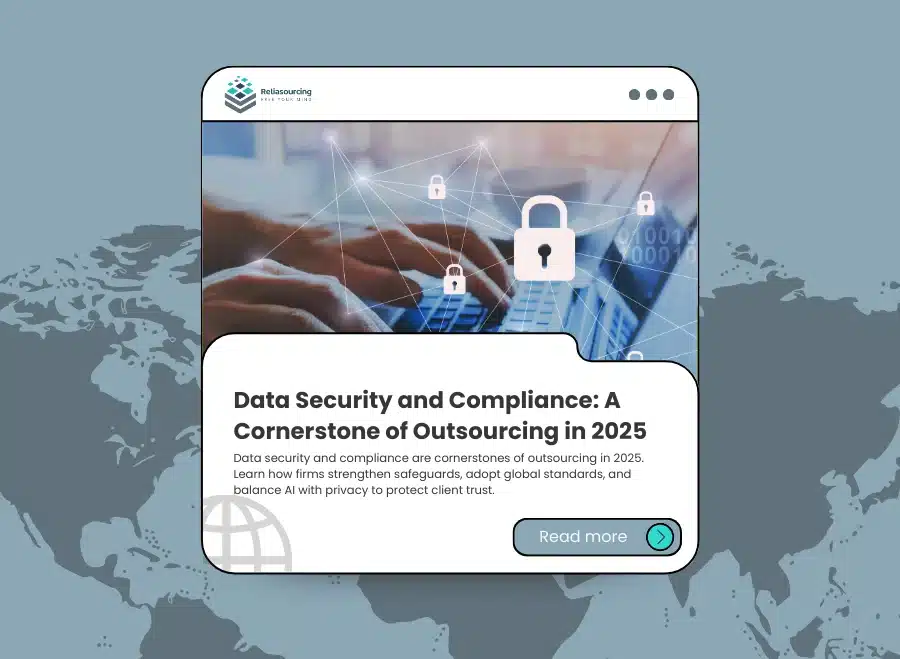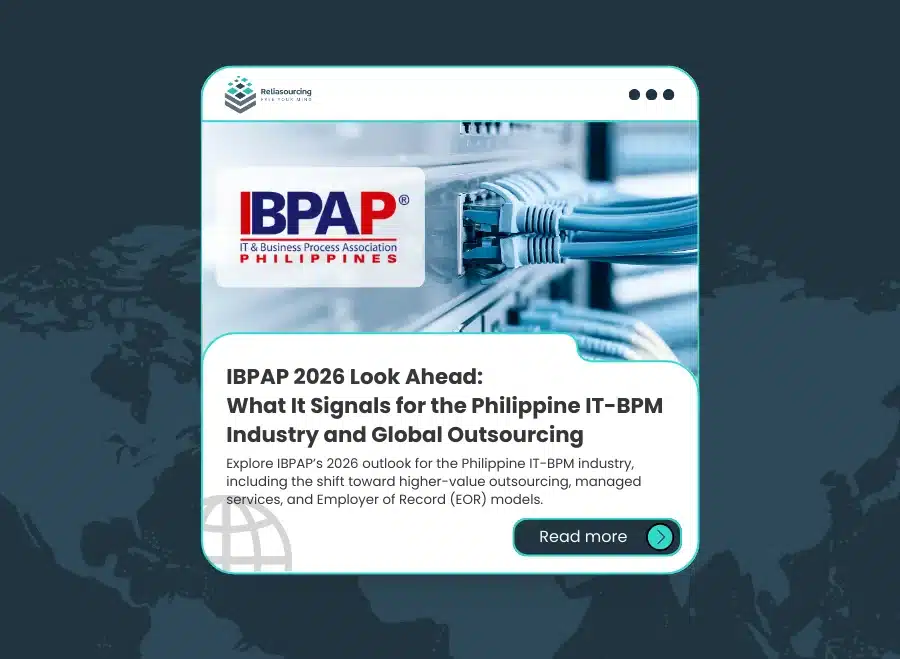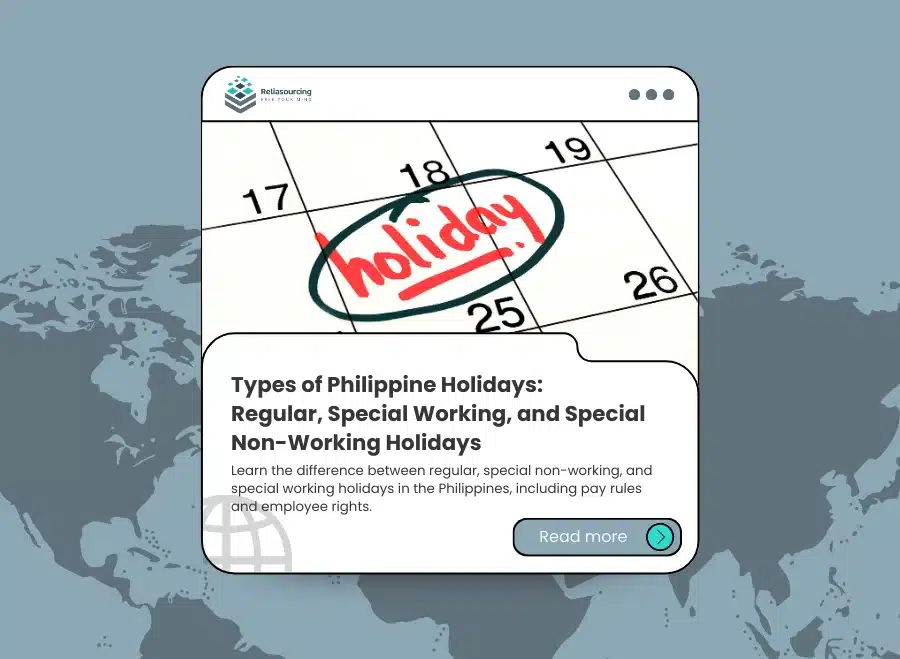As outlined in the State of Outsourcing in 2025, the average cost of a data breach now reaches $4.45 million, prompting outsourcing firms to strengthen their security frameworks and compliance strategies. With sensitive information constantly moving across borders and stored on cloud-based platforms, businesses require assurance that their partners can protect data integrity. Additionally, they must uphold customer trust in the process. And for outsourcing hubs like the Philippines, where global companies entrust business-critical information, this is particularly important.
Why Data Security Matters More Than Ever
The acceleration of digital transformation has led to unprecedented data processing volumes by outsourcing providers. Customer records, financial data, health information, and intellectual property are now routinely handled offshore. As operations expand, so do potential vulnerabilities. Relying on distributed teams, remote access systems, and third-party applications creates multiple entry points for cyberattacks. The stakes are raised for compliance with international regulations like GDPR and CCPA, while also necessitating stronger safeguards against increasingly sophisticated cyber threats.
A single breach can cause reputational harm, financial penalties, and legal disputes. It can also lead to the loss of client trust, risks that no business can afford in a market that thrives on data. In industries like healthcare and fintech, regulatory oversight is strict. Even minor lapses in security can derail entire business relationships.
Compliance as an Advantage
Beyond protection, compliance is now a mark that differentiates outsourcing firms from each other. Companies are actively choosing partners who demonstrate rigorous adherence to global standards, often making compliance one of the top criteria in vendor selection. Certifications such as SOC 2, ISO 27001, and HIPAA compliance are now baseline requirements for providers aiming to secure contracts with multinational enterprises.
Forward-looking firms adopt advanced technologies to elevate their security posture with tools like end-to-end encryption, blockchain verification, zero-trust architecture, and role-based access controls deployed to protect sensitive data at every workflow stage. Regular audits, third-party penetration testing, and transparent reporting practices further build client confidence. In fact, firms that can provide detailed compliance dashboards and proof of ongoing monitoring often win bids over competitors who cannot.
Balancing AI Adoption with Privacy
The rapid adoption of AI and automation has added new layers of complexity to compliance. Generative AI models, for example, can analyze massive datasets and streamline customer interactions. Still, without proper oversight, they risk breaching privacy laws, mishandling personal data, or creating bias in decision-making.
The lesson from 2024 is clear: while automation drives efficiency and reduces costs, outsourcing firms must design AI systems with privacy-first principles, which means incorporating data minimization practices, anonymization techniques, and strict controls over what data AI systems can access. Hybrid models that keep humans in the loop are also becoming standard practice, ensuring that sensitive or nuanced situations are managed responsibly.
Embedding ethical AI guidelines is crucial for aligning with compliance requirements. The approach allows providers to deliver the benefits of automation without compromising trust. Regulators are also stepping up scrutiny in this area. Firms that fail to act risk reputational damage, fines, and sanctions.
The Global Context of Compliance
Another dimension shaping outsourcing in 2025 is the international patchwork of regulations with businesses now operate across multiple jurisdictions, each with its own set of rules for data handling. Providers must remain agile, ensuring compliance with Western standards like GDPR and CCPA and region-specific policies in Asia and emerging markets. For example, cross-border data transfer regulations and localization laws are growing stricter, requiring firms to adapt infrastructure and reporting systems.
The global complexity makes outsourcing providers valuable partners since they often serve as compliance guides for clients unfamiliar with foreign regulatory landscapes. Firms that can navigate this maze effectively provide operational support and strategic compliance expertise.
Looking Ahead
Data security and compliance will define the industry’s credibility as businesses increasingly rely on outsourcing for mission-critical operations. The winners of this era will be providers who can offer both efficiency and innovation. They must also ensure that sensitive data is secure, regulations are followed, and customer trust is safeguarded.
For decision-makers, the takeaway from the State of Outsourcing in 2025 is clear: when choosing an outsourcing partner in 2025, prioritize those with proven compliance frameworks, robust certifications, advanced security technologies, and a culture that places data protection at the heart of service delivery. In the years ahead, outsourcing will move away from being just about cost savings. It will be all about trust, resilience, and responsible growth.
About Reliasourcing
Reliasourcing is a premier outsourcing solutions provider in the Philippines. We deliver tailored services that help businesses across industries achieve operational efficiency and scalability. With a focus on customer experience and innovation, Reliasourcing continues to be a trusted partner in unlocking potential through outsourcing.
Follow us on Facebook, Instagram, LinkedIn, YouTube, and X for more information on the latest trends and insights in outsourcing, the industry, and the Philippines.
Connect with us, or become part of our growing team today!









